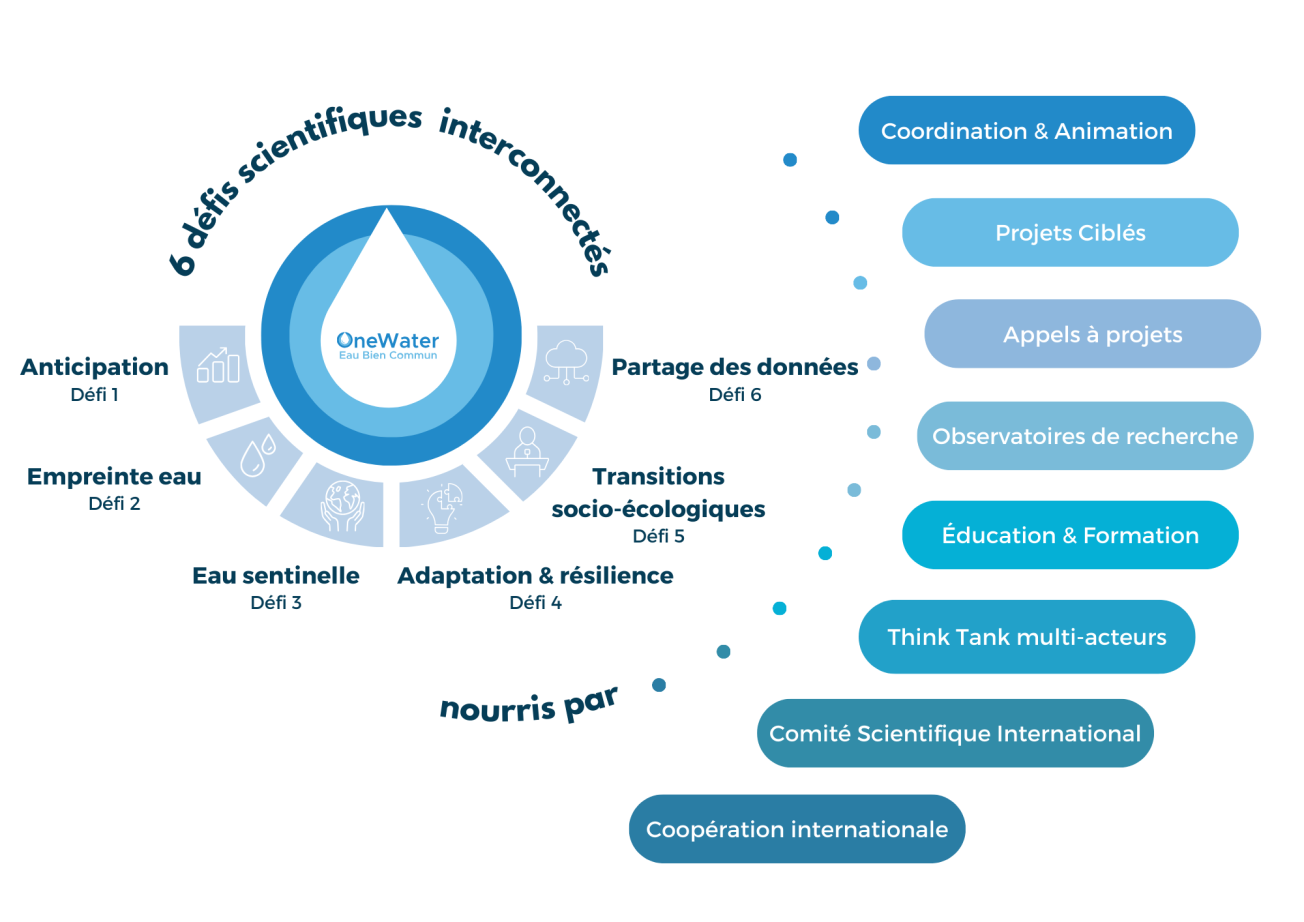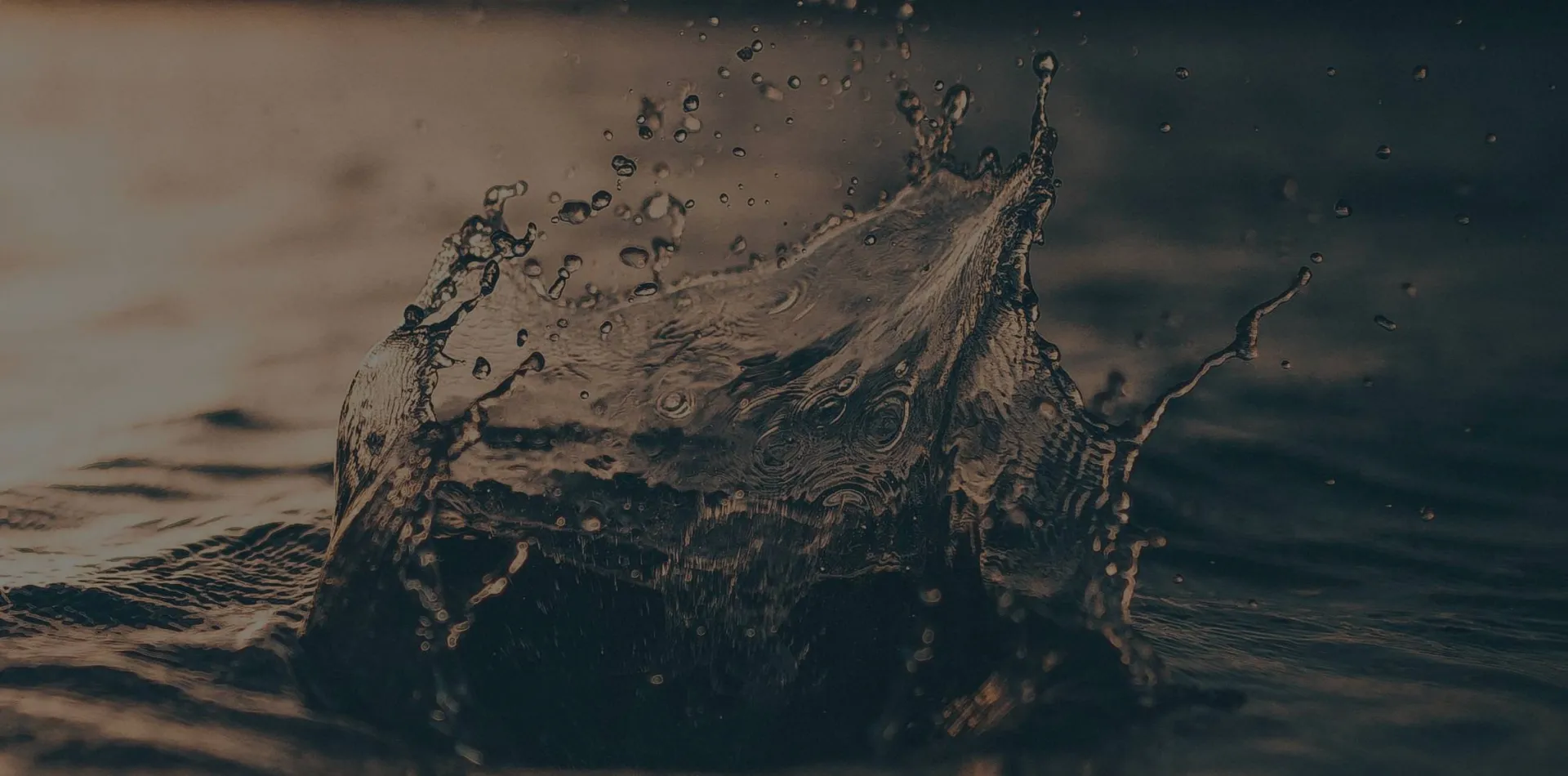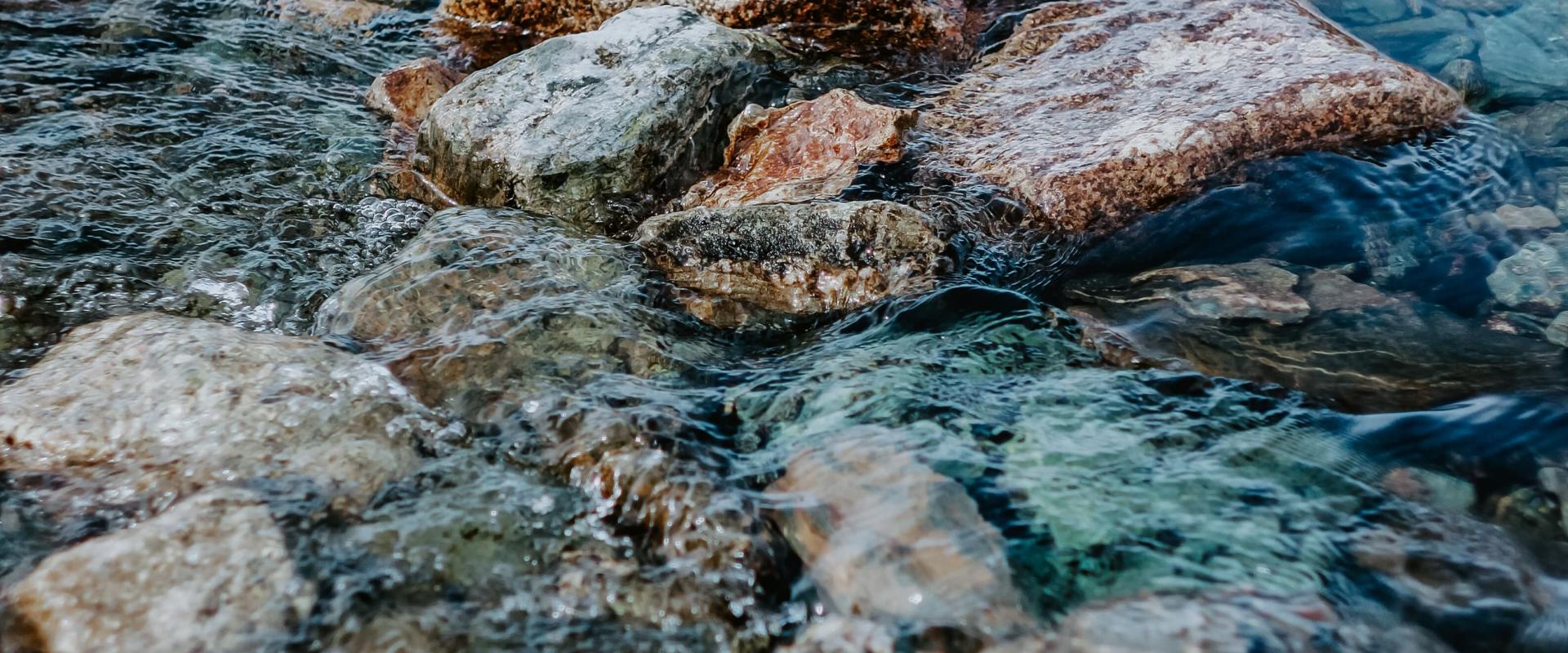Challenge 1 - Anticipation
The first challenge is to anticipate changes affecting water resources by improving knowledge about its past and future variability. This is largely based on the development of a lysimeter network to observe groundwater recharge, hydrogeological modelling including human activities, and seasonal forecasts.
Challenge 2 - The water footprint
The second challenge is about building a new, all-encompassing footprint concept, linking the full spectrum of anthropogenic pressures to their consequences on hydrosystems and aquatic ecosystems. This ‘water footprint’ must take into account the transformation of causes and effects throughout the water and element cycles along the land-sea continuum.
Challenge 3 - Water as a Sentinel
The third challenge aims to develop water as a sentinel for the health of the environment and human societies along the land-sea continuum by developing new approaches and methods based on existing data and new data to be acquired, to construct relevant indicators.
Challenge 4 - Adaptability and resilience
The fourth challenge will develop and promote approaches for improving the resilience of water resources and ecosystems in a context of global change, identifying the conditions for the adaptability of meta-ecosystems, characterizing the levers for the reasonable, sustainable and circular use of resources, and facilitate trade-offs between human needs and resources.
Challenge 5 - Socio-ecological transitions
The fifth cross-cutting challenge is to co-produce new governance approaches and tools to protect water and to draft public policies on water as a common good, including forms of adaptive water governance and pathways leading to a viable, equitable and sustainable development of socio-hydrosystems.
Challenge 6 - Sharing water-related data
The sixth cross-cutting challenge will be to improve data sharing to support decision-making. By applying the principles of findability, accessibility, interoperability, and reusability (FAIR data), this will allow innovative analysis technologies to generate relevant information that can be used by scientists and other stakeholders.
OneWater: the concept

Schéma explicatif du programme OneWater - Eau Bien Commun
© OneWater
The scientific challenges are underpinned by a range of tools and actions:
-
Projects funded through calls for proposals
-
Interactions with observatories, research infrastructures, Living Labs
-
Education, training and capacity building
-
Multi-stakeholder Think Tank
-
Cooperation with European and international initiatives

